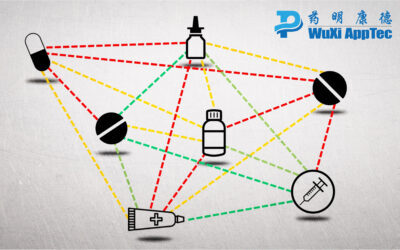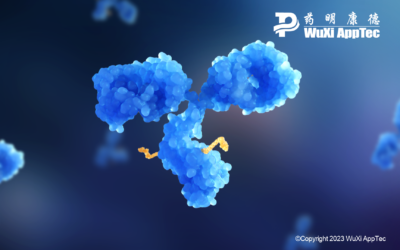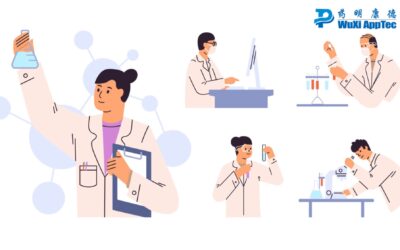Drug-Drug Interactions (DDIs) occur when a drug affects the efficacy of another drug that is being co-administered, which can result in unexpected side effects. Most drugs are metabolized in the body by enzymes, and changes to these enzymes can alter the effects of...
Technical Expertise
The Inherent Challenges of Antibody-Drug Conjugate (ADC) Bioanalysis
Antibody-drug conjugates (ADCs) target and destroy cancer cells like few available therapies. Highly potent and laser-focused, these tools have been around since 2000; currently, just 14 of them have been approved for use. ADCs are made up of a monoclonal antibody, a...
4 Critical In Vitro Genotoxicity Assays for Preclinical Drug Development
Genetic toxicology studies are an integral part of the basic toxicological information package used in the risk assessment and decision-making process for a new drug. In this short guide, we walk through four critical in vitro genotoxicity assays drug developers need...
Reproductive Toxicology & the EPA’s Tiered Testing System
The endocrine system comprises myriad glands, hormones and receptors throughout the body that regulate biological processes from birth to death. Chief among those processes is the differentiation, growth and function of the human reproductive system. Human...
5 Critical Nonclinical Toxicology Studies Required for IND Submission
Toxicology studies are required for Investigational New Drug (IND) and New Drug Application (NDA) submissions in order to fully define the safety profile of a drug – and maintain the highest level of patient safety. In this short guide, we cover the core battery of...
The Many DMPK Challenges of Cancer Treatment ADCs
Since German Nobel laureate Paul Ehrlich developed the concept of the “magic bullet” in 1907, researchers have chased the possibility relentlessly. Ehrlich’s immune response research proposed killing specific microbes without harming the body itself, a goal which...
6 Essential Qualities in a Drug Safety Assessment Testing Partner
Drug safety assessment is a highly complex, involved and molecule-specific process, which is why most drug developers benefit from working with a testing partner. But not all CROs are created equal. Here are six characteristics to consider. Safety assessment studies –...
What Is Bioanalytical Testing & Method Validation?
To be effective and safe, a therapy must contain precise drug concentration. That’s why bioanalytical testing is required during the drug development process. For robust and accurate data, bioanalytical testing relies on effective method development and validation. In...
QWBA and Mass Balance Studies
Quantitative whole-body autoradiography (QWBA) and mass balance testing are equally important processes to gather data on a drug candidate’s absorption, distribution, metabolism, and excretion (ADME) properties. While both QWBA and mass balance can give details...
What Is IND-Enabling Testing & What Does It Include?
IND-enabling testing is a cornerstone of the drug development process, helping researchers predict safety concerns and estimate safe and efficacious starting doses for clinical trials. Planning ahead, understanding the tests you need to conduct, and diligent tracking...
In Vivo ADME Testing in Drug Development: A Short Guide
In vitro and in vivo ADME studies provide valuable data about a test article as it moves through preclinical development. In this short guide, we provide an overview of in vivo ADME testing, including why it’s important and how it works. For a successful...
How to Improve PROTACs’ Oral Bioavailability
PROteolysis TArgeting Chimera (PROTAC)* drugs hold enormous potential. No PROTAC drugs have earned FDA approval yet, but they are being widely explored across industry and academia for an ever-expanding range of treatments. Part of PROTACs’ appeal is in their...











